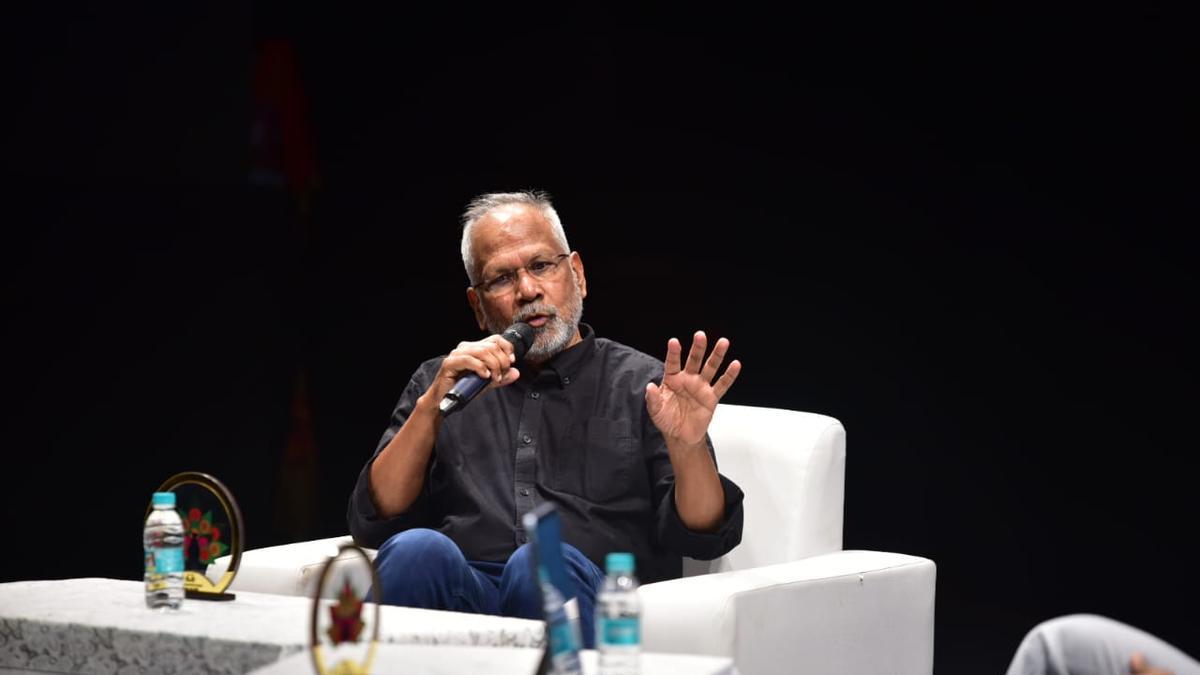
The Toronto International Film Festival (TIFF) has long been a stage for remarkable comeback narratives. It was at this grand event that Brendan Fraser received a standing ovation two years ago for his role in “The Whale.” This year, the festival may just be marking another unexpected resurrection in the entertainment industry — that of Pamela Anderson.
On Friday, Gia Coppola unveiled her latest work, “The Last Showgirl,” an indie drama that casts Anderson as a seasoned Las Vegas showgirl, mirroring the kind of role that ignites both nostalgia and fresh admiration. In this film, Shelley (played by Anderson) is the star of a long-standing casino dance show featuring scantily clad, feather-adorned women, a spectacle whose glory days are now a memory. With the dwindling audience attendance becoming impossible to ignore, the show’s stage manager, portrayed by Dave Bautista, makes the somber announcement that they are nearing their final performance. This leaves Shelley, who remains genuinely devoted to the show, in a state of existential crisis.
Though “The Last Showgirl,” currently available for purchase in Toronto, received mixed critical reviews, it managed to garner a sympathetic response and warm applause for Anderson, now 57. Speaking at the Princess of Wales Theatre right after the premiere, Anderson shared her sentiments with the crowd. “I’ve been getting ready my whole life for this role,” she said, her statement resonating with a kind of poetic justice that few comeback stories achieve.
Anderson, whose career highlights include iconic roles in “Baywatch” and “Borat,” regarded the festival’s reception as an almost surreal experience. The journey that led her to “The Last Showgirl” is insightful in its own right, revealing a new chapter in her professional journey. “It’s the first time I’ve read a good script, first of all. I’ve never had a script come to me that was coherent,” she confessed. “I was like: I’m the only one that can do this. I’ve never felt that strongly about something.”
The emergence of “The Last Showgirl” aligns seamlessly with a series of fortunate events that have recently graced Anderson’s life. This includes the release of her 2023 memoir, “Love, Pamela,” and the Emmy-nominated Netflix documentary “Pamela, A Love Story.
.” The film also echoes themes from another notable TIFF entry, “The Substance,” a body horror production starring Demi Moore that similarly tackles issues of ageism against female entertainers.
Jamie Lee Curtis, who plays a notably “bronzed” casino waitress in “The Last Showgirl,” became visibly emotional as she discussed her character. “I’m just a product of that same reality,” Curtis revealed. “You know who Annette is. Every single one of you knows an Annette. It’s a movie about dreams and going after your dreams. But of course, the dreams become a really (expletive) harsh reality. And for women, it’s a really harsh reality that men don’t have as much.” Curtis concluded her heartfelt commentary with a smile, adding, “And a spray tan helps.”
The crowd at TIFF seemed to sense the emotional and professional stakes for Anderson. The festival often showcases films that explore deep-seated societal issues enveloped in personal narratives, and “The Last Showgirl” undoubtedly fit that mold. For Gia Coppola, this film marks another artistic endeavor that explores the intricacies of human emotions set against a backdrop of compelling storytelling.
Moreover, the presence of a seasoned ensemble cast, featuring heavyweights like Jamie Lee Curtis and Dave Bautista, only adds more substance to the film. Bautista’s portrayal of the empathetic yet pragmatic stage manager injects a layer of complexity to the storyline, making it resonate even more with audiences.
“The Last Showgirl” is more than just a film about an aging performer; it is a poignant tale that delves into the harsh realities of life and career transitions. For Pamela Anderson, it serves as a testament to her enduring spirit and talent, transcending the limitations that typecasting and industry biases often impose.
In the grand tapestry of TIFF, where each film is a thread weaving into the larger cultural narrative, Anderson’s performance in “The Last Showgirl” stands out as a glittering indication that comebacks can indeed be more than mere nostalgia — they can be powerful affirmations of enduring talent and relevance.










